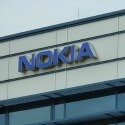The new mobile handset partnership built around Nokia's brand suits all parties, says CCS Insight head of research and mobile device industry specialist Ben Wood.
May 19, 2016

In pulling together multiple parties that can take its global brand to market on a new range of Android mobile devices, Nokia has devised an "extremely elegant way to drive revenues from mobile devices without the risk of being a [phone] hardware maker again." (See Nokia Plays It Smart With Major Mobile Devices Brand Deal.)
So says Ben Wood, head of research at CCS Insight and one of the foremost authorities on the global mobile device market, who notes that the "complex four-way" relationship announced Wednesday suits the needs of a quartet of stakeholders looking to either solve some problems or achieve ambitions.
In a nutshell, Foxconn Electronics Inc. subsidiary FIH is buying Microsoft's feature phone business and will manufacture a range of mobile devices that will be marketed by a new, private equity-backed Finnish company called HMD. Nokia Corp. (NYSE: NOK) is licensing the patents needed to make the devices and is also licensing the Nokia brand.
Microsoft Corp. (Nasdaq: MSFT), it must be remembered, acquired the line of feature phones -- which enable users to access the Internet and store and play music, for example, but which lack the rich application set of smartphones -- as part of the broader device business purchase from Nokia in 2013. (See Nokia Sells Devices Business to Microsoft and The Nokia/Microsoft Conspiracy Theory.)
For Microsoft, the sale of the feature phone business "gets rid of a problem child … it never sat comfortably at Microsoft and there was no strategic role for it. I imagine Microsoft had been looking to offload that part of the Nokia acquisition ever since they bought it," says Wood.
Contract technology manufacturing giant Foxconn, meanwhile, appears to have ambitions to become a fully fledged mobile phone vendor: This deal takes it a step closer to that role but still keeps it "at arm's length" from becoming a direct rival to its existing mobile device customers such as Apple, Blackberry, Huawei, Xiaomi and Sony.
Nokia, meanwhile, now has a "risk averse" way to drive revenues from its patent portfolio and a brand that "still has some equity … this is a fantastic strategy for Nokia."
And this is the strategy that Nokia has had for a while, as articulated in November 2014, when it unveiled a Nokia-branded tablet that was being built, marketed and sold by Foxconn. (See Did Nokia Really Just Launch a Tablet?.)
HMD, meanwhile, can leverage those experienced partnerships and target a slice of the global mobile device market. The smartphone market alone was worth about $400 billion in 2015, with more than 1.43 billion units shipped by vendors, according to IDC. Smartphones account for the majority of global mobile device sales but hundreds of millions of feature phones are also sold each year and that will be HMD's starting point, notes Wood.
For more coverage of the strategic pressures and opportunities facing operators and vendors in the communications market, see our business transformation content channel here on Light Reading.
The analyst notes that the feature phone market is "still a sexy little business," with significant demand in emerging markets and still a tail of demand in mature markets. "There are still about 1 million feature phones sold in the UK each year," of the total 20 million mobile phones sold in Britain. "Globally this is still a good business to be in. It may be in decline but there is money to be made and Nokia's brand is still strong in the feature phone market," notes Wood.
The CCS Insight man says HMD has its work cut out -- its planned marketing budget of $500 million over the next three years is a fraction of the dollars that the likes of Samsung and Huawei will spend, but it will at least be seeking to build a base in the feature phone market and then look to grab a slice of the smartphone market after that, though Nokia's brand is not really a force in that sector.
Much will depend on the designs and details of the devices to be launched and it's too early to tell what sort of impact HMD, in partnership with Foxconn and Nokia, will have on the global mobile devices market, but the potential definitely lies initially with Nokia-branded feature phones and "any smartphone business will be an upside," believes Wood.
— Ray Le Maistre, 

 , Editor-in-Chief, Light Reading
, Editor-in-Chief, Light Reading
You May Also Like









